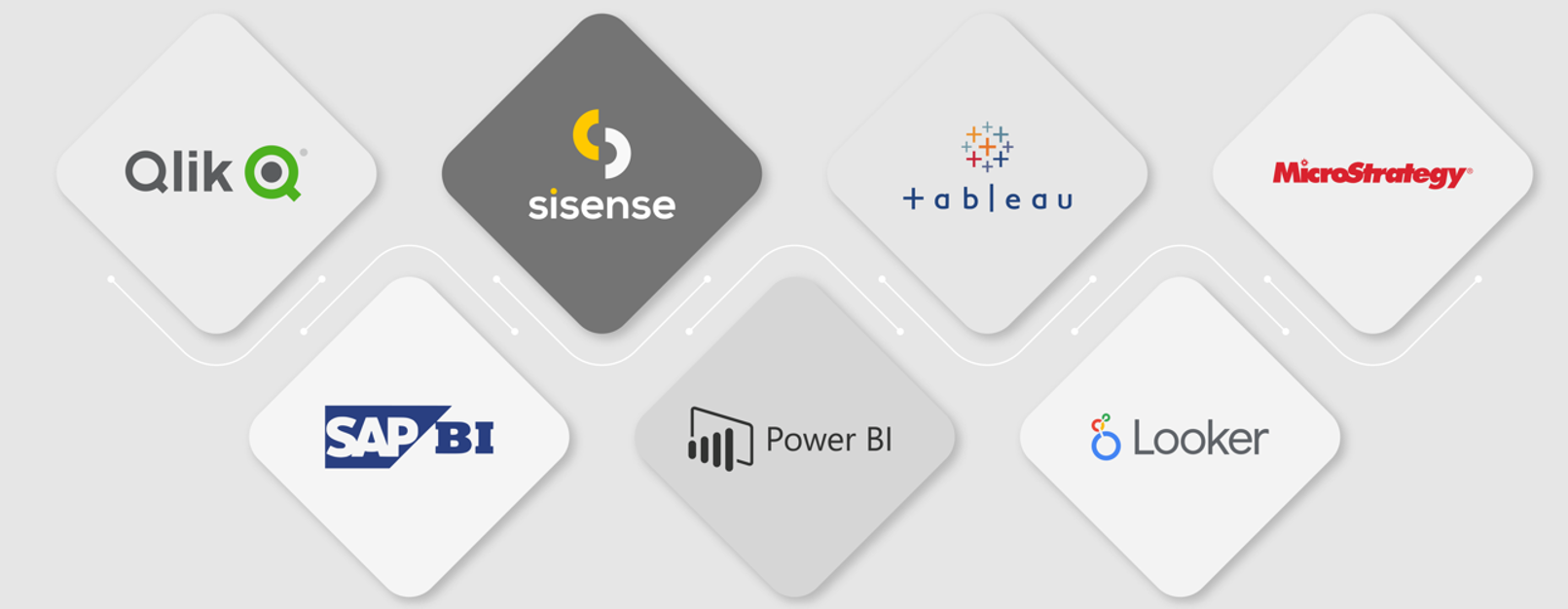
DataScava and BI: A Data-Centric Advantage
Business Intelligence can’t stop at structured data. The real signal often lives in unstructured text — but most BI tools struggle to process it effectively, leaving valuable insights untapped.
DataScava is an advanced unstructured text mining solution that precisely pinpoints high-quality data with user-controlled business and domain language. It evolved from TalentBrowser, where we patented deterministic methods to structure, measure, filter, and curate nonlinear content — without requiring training data or manual labeling.
By enabling you to harness your expertise — working standalone or with your BI stack — DataScava helps you:
- Transform messy, nonlinear text into structured, explainable metadata for dashboards and reports
- Feed numeric, auditable outputs into BI tools like Qlik, Tableau, and others for visualization and analysis
- Stay in control with rules, thresholds, and taxonomies you define — ensuring only the most relevant insights surface
How It Works
DataScava applies three complementary methodologies that focus on your business language and expertise, not generic language models:
DSIndex | Domain-Specific Language Processing (DSLP)
- Structures and measures user-defined key terms exactly — with no disambiguation
- Generates structured file-level metadata, including corpus-relative percentile rankings, for efficient retrieval and downstream use
- Outputs metadata for use in other solutions and BI tools (Qlik, Tableau, etc.) for visualization and analysis
- Reprocesses automatically when vocabularies are refined in DSTopics or thresholds are adjusted in DSMatch
- Tailors outcomes to your business and domain language instead of generic models
DSTopics | Tailored Topics Taxonomies (TTT)
- Import, build, or select vocabularies and data types that reflect your business and subject matter expertise
- Define and weight domain language for accurate results and continuously refine to adapt to changing needs
- Add, delete, and edit terms on the fly; DSIndex reprocesses and rematches files instantly
- Use taxonomies across multiple domains and contexts to scale without duplication
- I.E., “Covid-19” topic is in a medical taxonomy but not IT. Investment banking topic has “Derivatives,” retail banking has “Checking Accounts”
DSMatch | Weighted Topic Scoring (WTS)
- Categorizes and prioritizes files using user-defined weighted topic score thresholds in must-have, NOT, and nice-to-have topics
- Refines results through multi-level ranking, filtering, sorting, and routing across matches and topics
- Highlights weighted terms in topic color and displays dual bar charts for full transparency and validation, making gaps and matches obvious
- Continuously processes new files so they are auto-classified and matched
- Ensures prioritized outcomes that reflect your rules and defined thresholds
Together, they form a patented approach we call “Profile Matching of Unstructured Documents” — modeled after a contour profile gauge carpentry tool, because DataScava measures language based on your priorities.
Prebuilt Editable Taxonomies
Jump-start your projects with ready-to-use taxonomies for Financial, IT, and TA domains — fully customizable and expandable. Select, edit, or build on them to reflect your unique expertise.
The DataScava Difference
-
- Less time, more accuracy – Filters and categorizes automatically, so experts can focus on real business problems instead of tedious labeling
- Precision at scale – Produces explainable, numeric results you can trust across industries and contexts
- Transparency over black-box AI – See and audit exactly why a file matched, with visual highlights and numeric thresholds
- Handles messy data – Irrelevant documents are filtered out automatically
- Scalable and domain-specific – Refine vocabularies, taxonomies, and scoring to meet evolving business needs
- Human in Command – You remain in control, with automation working alongside your expertise.
- Deterministic by design – Unlike NLP/NLU, it doesn’t infer meaning; it measures what you define and presents data in transparent, actionable context
Hear It From an Expert
BI is only as powerful as the data it consumes. That’s why we asked Scott Spangler—former IBM Watson Health researcher, Chief Data Scientist, and author of the book Mining the Talk: Unlocking the Business Value in Unstructured Information—to share his perspective on how unstructured data transforms Business Intelligence.
In his article “The Key Ingredients for Game-Changing BI from Unstructured Data,” Scott outlines why BI must embrace unstructured text, the pitfalls of current approaches, and how DataScava enables organizations to build and deploy subject-matter-driven taxonomies at scale.
Key themes he explores:
- Why unstructured data is critical to BI analytics.
- Drawbacks of machine learning-only, generic taxonomies, and off-the-shelf text mining.
- The importance of SME-driven taxonomies for accuracy and relevance.
- How DataScava operationalizes these taxonomies to maximize BI value.
See how DataScava brings unstructured text into BI.
